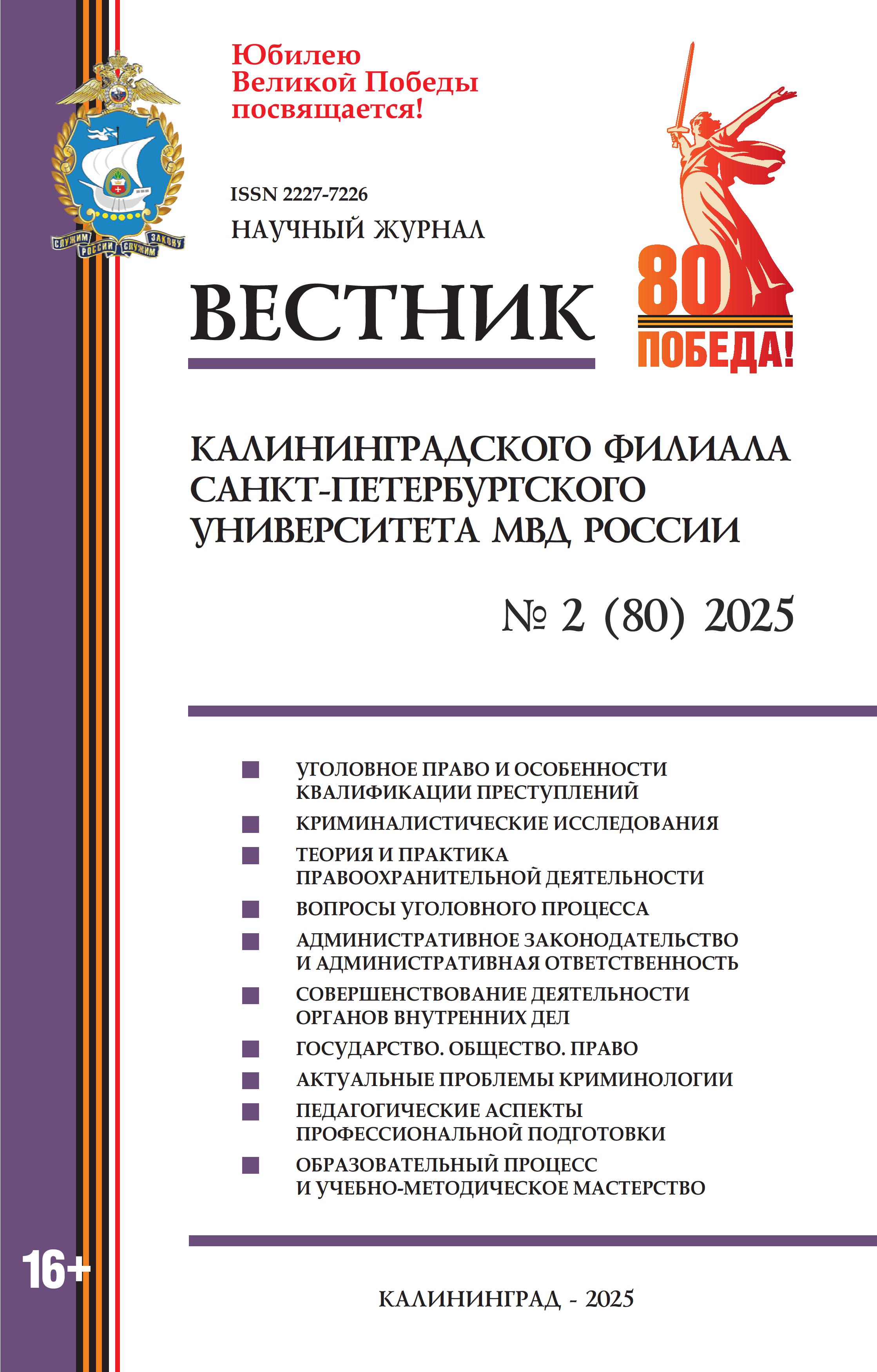Kaliningrad, Kalinigrad, Russian Federation
from 01.01.2018 until now
Saint Petersburg, St. Petersburg, Russian Federation
Introduction. The article considers the criminal legislation of India and China in terms of legislative consolidation of the methods of committing theft, as well as the specifics of the content of the latter. The substantiation of the need to use the positive experience of these countries to improve domestic criminal law norms providing for liability for the theft of someone else's property is presented. Methods. As part of the study, the authors of the article analyzed the norms providing for criminal liability for the theft of someone else's property, which are enshrined in the new criminal law of India and the Criminal Code of the PRC. Foreign scientific literature (in English and in the original language) on the topic of the study was studied. The methodological basis of the study was the dialectical method of cognition. General scientific (systemic analysis, synthesis, induction, deduction, interpretation, description and generalization) and specific scientific (formal logical, comparative legal, statistical, comparative) methods were used. Results. Based on the results of the conducted research, foreign experience in legislative consolidation of methods of committing theft was summarized using the example of India and China. The conclusions made based on the results of the comparative analysis allow us to improve our understanding of the legislative consolidation of the criminal law category considered in the article in the relevant regulatory legal acts.
Criminal law, modus operandi, theft of property, India, China, comparative study








